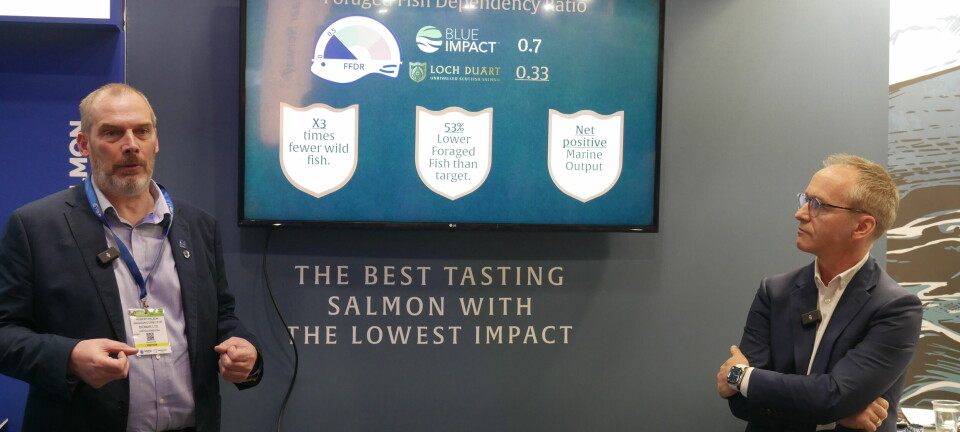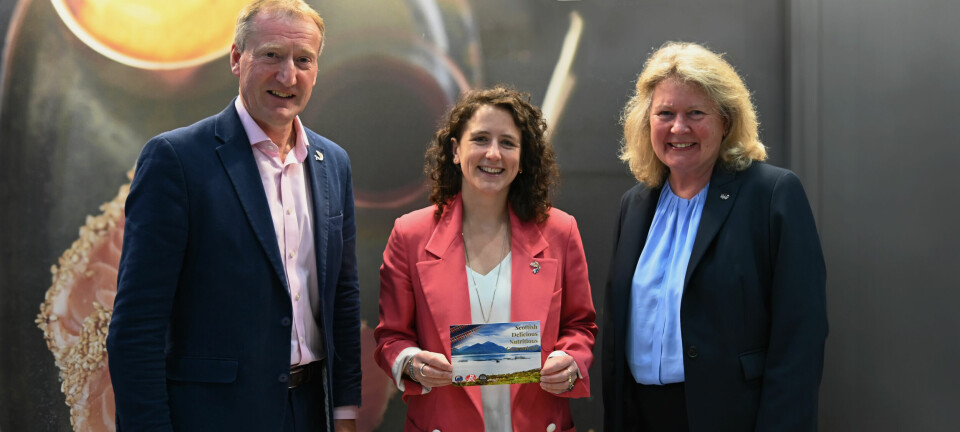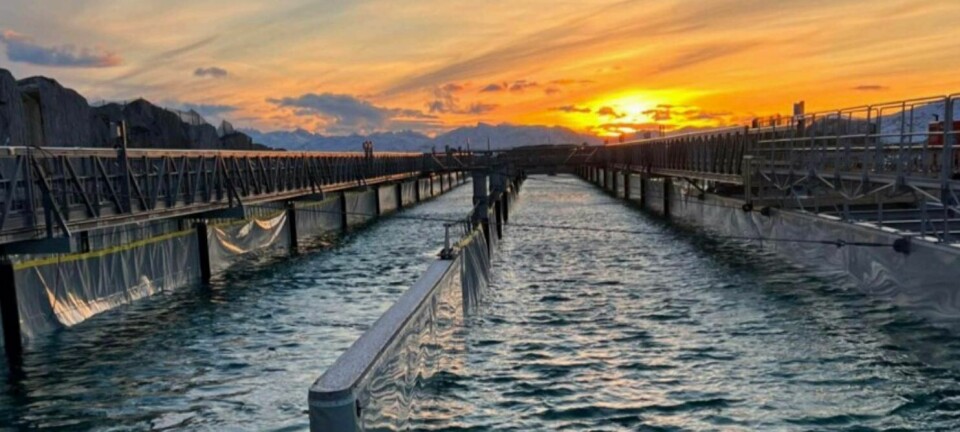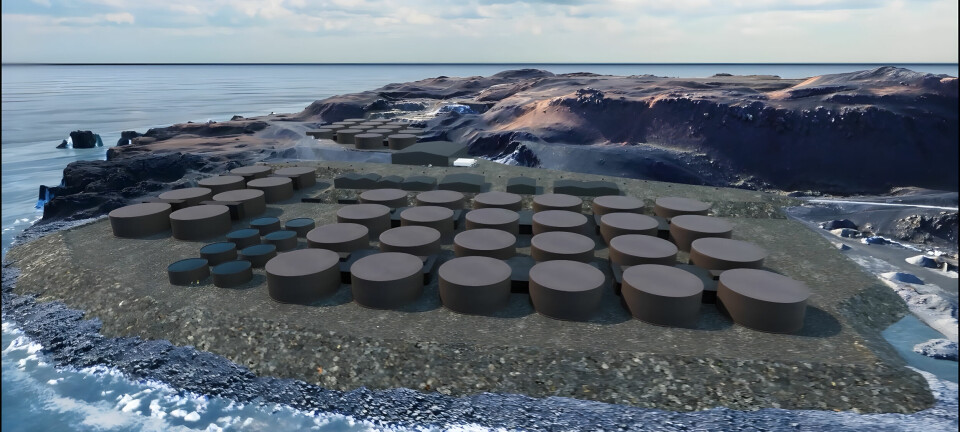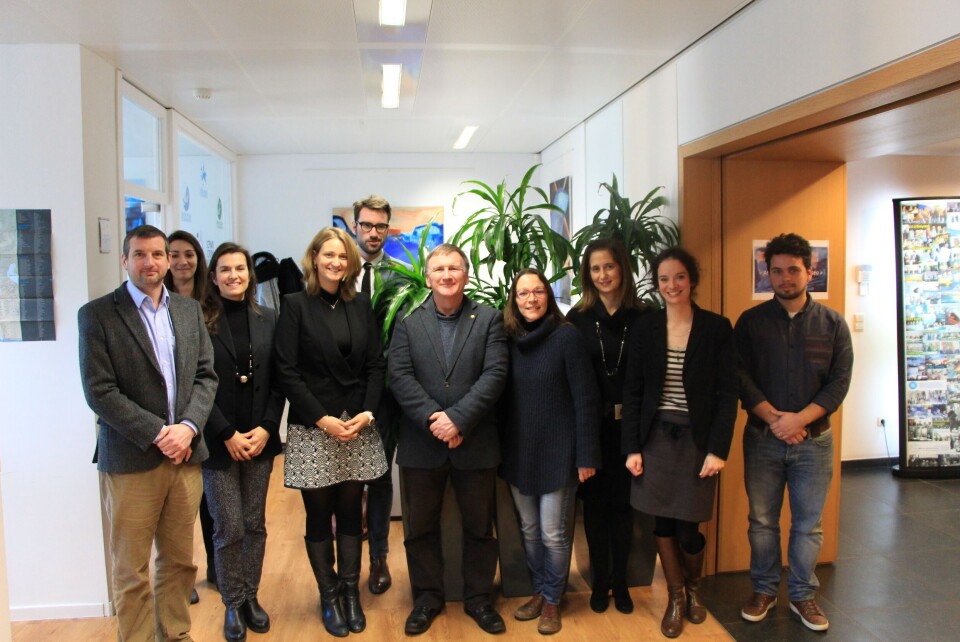
Input sought for revolutionary new degree
Aquaculture practitioners from across Europe and beyond are due to be contacted in the next few months in order to help shape the content of a brand new Master’s degree course, which will consist of three months of modular study followed by a 9-month placement at a biotech SME.
The innovative course, which aims to include content on how biotechnology can benefit the aquaculture industry, is due to be launched later this year and, in order to make the course as industry-relevant as possible, feedback from the aquaculture sector is going to be sought over the next few months.
The degree – which seeks to address skills gaps recognised by employers in the blue biotechnology sector – is taking place at the University of La Rochelle, but will include input from Stirling’s Institute of Aquaculture as part of a consortium of Small and Medium Sized Enterprise (SME) and academic partners from Belgium, France, Portugal and Spain.
Students will receive the latest knowledge and practical training in blue biotechnology, including the exploration of marine organisms to develop new products. In addition, participants will undertake a programme of transferable skills aimed to enhance employment prospects and ensure workplace readiness, such as communication, language and management skills.
The project’s UK coordinator, Dr Andrew Desbois, Lecturer of Marine Biotechnology at the University of Stirling, explains to Fish Farming Expert: “One key output of this project is to put together an MSc degree which will be made up of 3 months of week-long modules, taught at La Rochelle, followed by a 9-month placement at a relevant biotech SME, to train people for entry into the aquaculture and biotechnology sectors.
“This will rely on the aquaculture and marine biotech industry of Europe letting us know what skills, knowledge and personal attributes they look for and expect from graduates and – importantly – what they feel new workers lack when they employ them. Moreover, we will be looking into what kind of short courses (as part of the first three months of the degree) they might find useful for existing employees.”
“Hence, we are looking to hear from aquaculture enterprises and invite them to contact us. We'll be reaching out to them over the next few months,” he explains.
Industrial evolution
He sees the aquaculture sector’s input as invaluable, especially at a time when the industry is evolving so rapidly.
“There’s a suite of skills needed to work in aquaculture and, as the sector embraces new technology, the kind of skills that are of value to the industry are likely to be changing,” Dr Desbois reflects.
“We are therefore hoping that this consultation phase, as we draw up the curriculum, will allow employers in the sector the chance to identify the kind of skills gaps they would like to see addressed,” he continues.
As far as the course content is concerned Dr Desbois is clear that aquaculture is going to play a central role – not least because of the number of employment opportunities it provides.
“The course content focuses on biotechnology, but the aquaculture industry relies increasingly on biotechnologists to provide solutions to existing, new and unanticipated problems. As a result, one thing we're aiming to provide is people with the skill set they need for a broad range of employment opportunities in aquaculture,” he reflects.
Called ‘Blue Biotechnology Masters for Blue Careers’ (BBMCB) the course is set to include an extended work placement with an industrial partner, and businesses with an interest in hosting a student for work-based training are especially encouraged to make contact.
While it will mainly be focused on the countries on the EU’s Atlantic seaboard, Dr Desbois is keen to invite input from further afield and says that the course, or parts of the course, may well be open to prospective students and existing workers from Scandinavian nations, such as Norway too.
Options aplenty
“The plan is to offer week long modules during the first three months of the course to current biotech/aquaculture industries as well as those enrolling for the full duration of the MSc,” he explains.
“We aim to gather as much information from as varied a selection of people within the sector as possible, including Scandinavia, and we’re keen for them to come to us in the next few months – it’s going to be a crucial time as we shape the curriculum before the course starts in September,” he adds.
The initiative is co-funded by the European Union’s Directorate-General for Maritime Affairs and Fisheries through the European Maritime and Fisheries Fund and its “Blue Careers in Europe” call that aims to underpin growth and job creation in the blue economy and Dr Desbois says that a number of other aquaculture-related initiatives may well emerge from the call in the coming months.
In the meantime, those interested in finding out more about the course/helping to shape the content should contact andrew.desbois@stir.ac.uk or follow the action on Twitter @BlueBiotech
